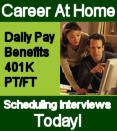Now that it is back to school time, parents must become advocates for their children and be vigilant against the labeling of their children as ADD or ADHD. Even autism is not just autism these days but a whole spectrum of disorders, many of which may just be personality variants.
Unfortunately, education today takes a negative approach to teaching children. Rather than build upon a child’s strengths, talents, and multiple intelligences, all students must fit the exact same mold. Today’s approach states that a child who does not pass certain standards must be diagnosed and classified. It is not that he has a different learning style, but that he is diseased or flawed in some way. There is money to be made with this approach both in terms of State aid given to school districts for special education programs and profits for the medical and pharmaceutical establishment.
Attention Deficit Disorder (ADD) may not be a real disease at all; however, the pharmaceutical companies as well as the medical establishment benefit financially from this classification. There are no lab tests that can diagnose ADD. A child may be labeled as ADD solely on observation by a classroom teacher or on the basis of a questionnaire rather than verifiable medical tests. Symptoms of ADD might include impulsivity, fidgeting of hands and feet, inability to pay attention, having difficulty remaining seated, excessive talking, not listening or following directions, often shifting from one uncompleted task to another, and being easily distracted. What child do you know who would want to sit still and listen to a boring lesson when he or she would rather be playing outdoors? It is quite natural for children to want to run about and play. I remember fidgeting and squirming in my seat while listening to a college history lesson at 8:00 a.m. in a large lecture hall, and I have never considered myself ADD. In fact some of the so-called “symptoms” of ADD may be signs of a creative mind. People with extra energy, and who have the ability to go from task to task are very valued in the real business world.
Thomas Armstrong, Ph.D., states the following in his book The Myth of the ADD Child: It seems improbable, for example, that A.D.D. would have received such widespread support as a learning disease had not the powerful American Psychiatric Association officially named it as a disorder in 1980. Yet it should be remembered that psychiatric illnesses tend to go in and out of fashion with the social and political climate of the times.
Instead of treating this so-called disease with smaller classes and more effective teaching techniques or even homeschooling, school children are dosed with dangerous class 2 controlled substance psychotropic drugs like Ritalin, Adderall, or Concerta. The same parents that willingly go along with dosing their children with powerful stimulant medications would never permit their children to drink coffee or soft drinks with caffeine which are lesser stimulants. Some of the medications used for ADD are similar in effect to Cocaine, yet parents would be horrified to find out that their kids were taking Cocaine or Meth. It is amazing how these so called behavior problems disappear when a child is taken out of the school situation and homeschooled. It is also not unusual to find the same inattentive and distractible child who is causing so many problems at school attentive while watching television of playing a video game.
I believe that psychotropic medications should only be used as a last resort in children and only for serious psychiatric disturbance. Not paying attention to a lesson hardly qualifies for dosing a child with powerful stimulant medications with their serious and sometimes dangerous side effects. Some of the short term side effects include: nervousness and insomnia, loss of appetite, nausea and vomiting, dizziness, palpitations, headaches, changes in heart rate and blood pressure, skin rashes and itching, abdominal pain, weight loss, and digestive problems. Sometime another medication such as Clonidine, a blood pressure medication, is given off label to control these symptoms. Before long the child is being given a whole potpourri of medications leading to an even more dangerous situation.
It is important for consumers to take control of their health care. This is what consumer driven health care is all about. It is always important to question diagnoses and treatment choices. Seek out alternative and natural treatments. Unfortunately some health insurance plans do not provide for equal coverage of mental illness and there are limits on the number of treatments. Alternative treatments are rarely covered which is why drug treatment has become so popular (the quick cure).
For more information on discounts on alternative medical treatments, mental health services, and consumer driven health care visit: www.healthplansplus.net. To read our homeschooling story visit:
http://www.workathomemom-dad.com/homeschooling.html.
Subscribe to:
Post Comments (Atom)









8 comments:
You'll be inspiring debate tomorrow as the reviews come in from the 5th Carnival of All Substances.
And one day I'll probably blog and support you on this. But until that day, as soon as the teachers kvetch that Little Joey's out of control, Little Joey will be getting his med-eval.
Some kids need it. Others don't.
I don't think that any kids need these drugs. Try smaller classes, more innovative curriculum, or even homeschooling. It is amazing how some of these symptoms disappear when children are taken out of school and homeschooled.
Sorry Helene, you are absolutely wrong with your comment that no kids need stimulant medications for ADD. Both of my children take them and I trust them to know themselves and their needs well enough to make that decision on their own. They have the freedom to take the medications or not and have chosen, over the years, to go to school or spend the summer both ways. They know and can articulate what the meds do for them and balance the benefits with side effects.
Dear Anonymous - I'm glad that it works well for your children, and you have given them the freedom to make their own decision. However, I do think that in general it is best to avoid medications with their side effects when safer alternatives will solve the problem such as smaller classes, special ed classes, dietary changes, and homeschooling. We don't know what the long range implications of taking these medications are. I know that not every parent is able to homeschool, but for us it totally solved my daughter's school issues. Good luck with your kids.
Here is some research about Ritalin that shows what people are searching for online surrounding Ritalin. It looks there is a lot of Ritalin abuse going on.
Thanks for your information on Ritalin. Ritalin abuse is just one of the problems caused by the overprescribing of Ritalin to our school children. In essence, we are teaching them that it is okay to do drugs.
Helene
I do agree with the article. Humanity has lived without ADD for longer than what ADD has been classified.
Unfortunately nowadays you cannot correct a kid the same way you did in the 50s. For me being an active child a good spanking always worked, and I have no resentment whatsoever to my parents or teachers to correct me this way.
So here is the question.... It is illegal to give a child a couple of slaps, but it is correct to fill them up with drugs?
We have to learn to see the positive side of things, not always the negatives.
You make a good point, but I don't think that you have to resort to spanking. There have been some deaths associated with Ritalin and certainly some serious side effects, so if giving physically healthy children isn't abuse, what is. Do parents realize that they are actually giving their children "speed."
I have a few piano students that would probably be classified as ADD. I just tell them to focus. In one case, I just told the child to stop fidgeting and moving back and forth as he played. It worked.
Of course with classes becoming larger and larger due to the recession, it is easier to just drug the kids.
I homeschooled my own daughter for academic purposes. During the course of our homeschooling, I came across many parents who reported that ADD symptoms disappeared once they withdrew their children from school.
Post a Comment